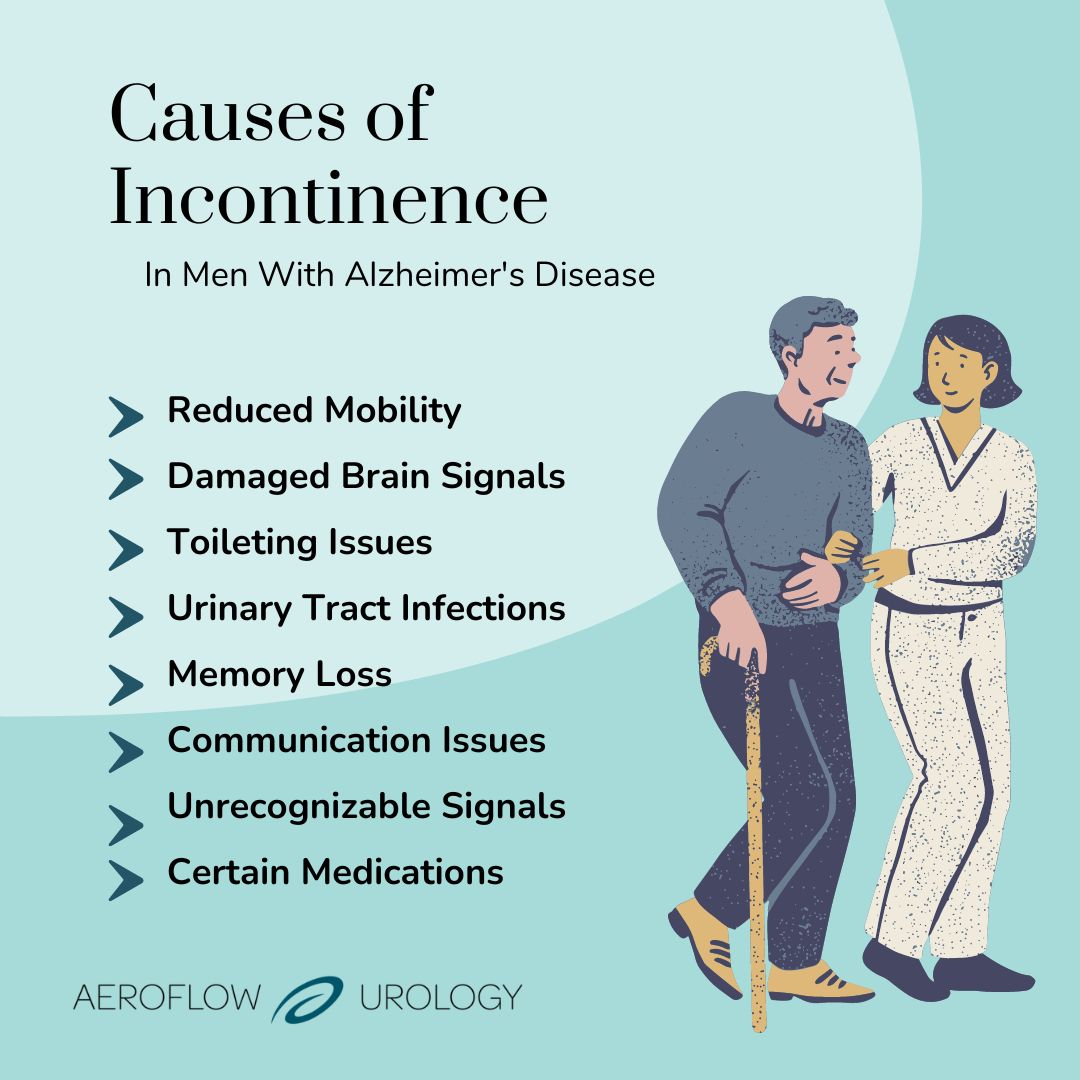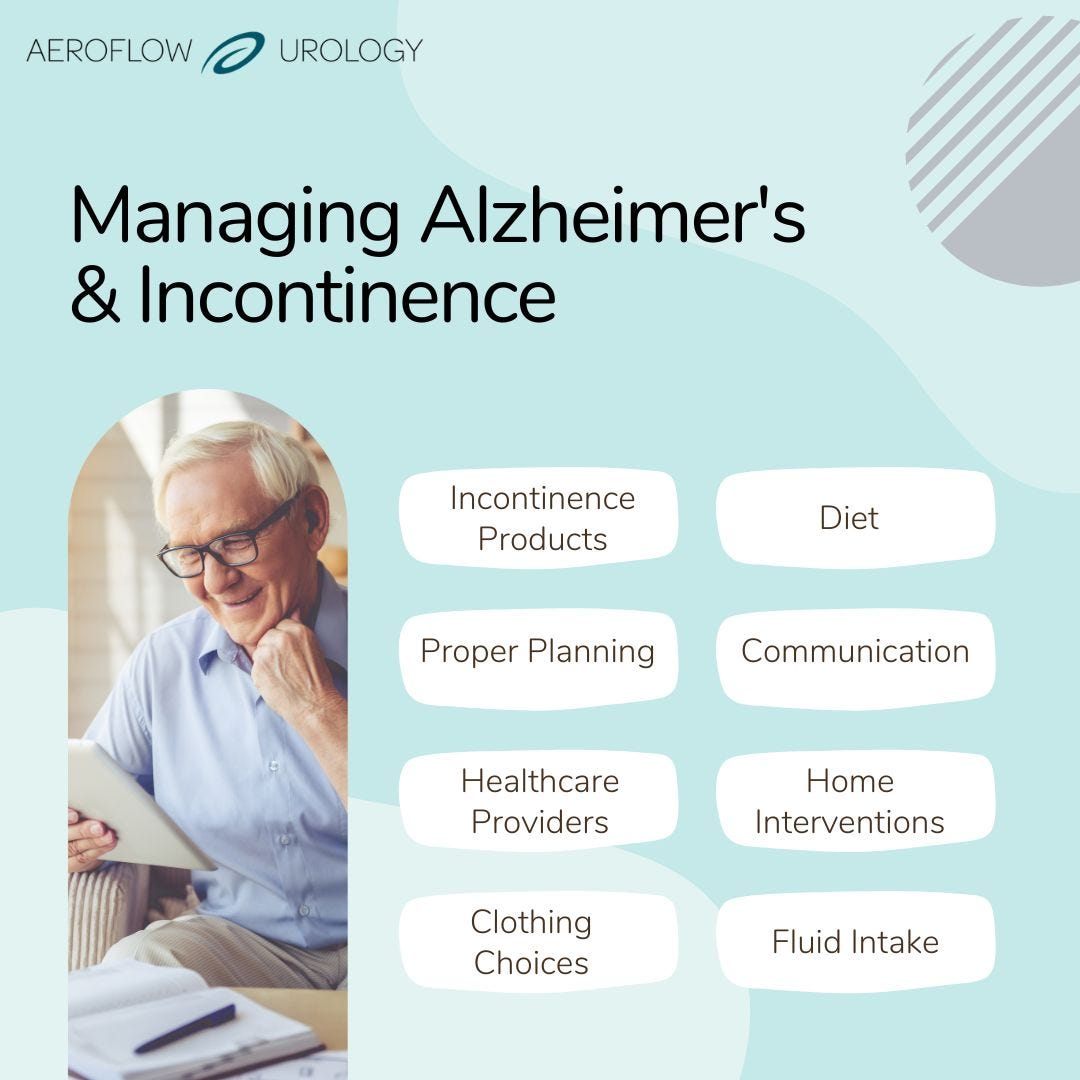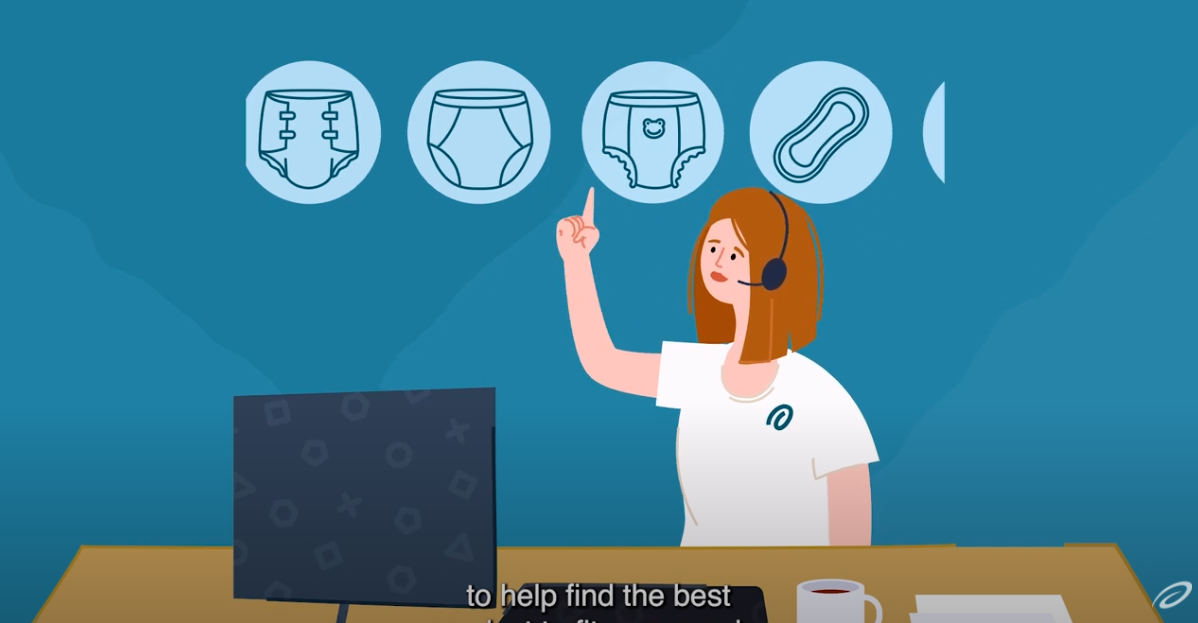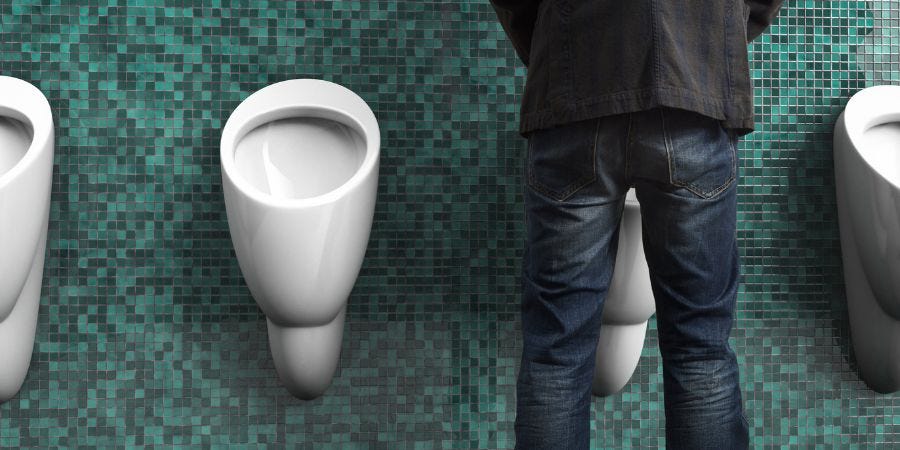Around two million men in the United States are diagnosed with Alzheimer's disease and it's estimated that 60 to 70% of those men experience incontinence.
But how are Alzheimer's and incontinence connected?
Forgetting how to use the bathroom, the inability to recognize bodily signals of needing to void, and the side effects of certain medications can all contribute to this loss of continence.
Read this post to learn more about how Alzheimer's can cause incontinence and get some tips on how to manage it.
What is Alzheimer's Disease?
Alzheimer’s disease is a brain disease that progresses slowly and is believed to begin years before symptoms start. Alzheimer’s causes memory loss, language problems, and unclear thinking, and can also cause incontinence.
About 60 to 80% of people with dementia have Alzheimer’s disease and about 44 million people living in the world are affected by Alzheimer’s or another type of dementia.
Check Your Eligibility
2 Easy Steps
From catheters to pediatric and adult incontinence supplies, discover the continence care essentials covered by your insurance.
Alzheimer’s disease is caused by the deterioration of brain neurons. This occurs when the proteins, called beta-amyloid (plaques) and tau (tangles), build up inside and outside of your brain neurons. This buildup causes damage and death of brain tissues.
There are three main stages of Alzheimer’s disease.
In the early stages, people may have difficulty:
- Knowing where they are.
- Remembering and finding things.
- Keeping up conversations.
In the later stage of Alzheimer’s, people may:
- Become easily agitated or aggressive.
- Become delusional.
- Struggle with spatial awareness.
- Have difficulty being aware of their surroundings.

What is Incontinence?
Incontinence is defined as a loss of bladder and bowel control. Incontinence affects around 3.4 million men in the United States and is prevalent in older adults because the risk of developing incontinence increases as you age.
There are different types of incontinence, including:
- Stress urinary incontinence (SUI): If you have stress incontinence, urine leaks from your bladder when you sneeze, cough, laugh, lift heavy objects, or exercise.
- Overflow incontinence: Overflow incontinence occurs when you cannot empty your bladder completely, and the leftover urine dribbles out of your bladder.
- Urge incontinence: Urge incontinence is accompanied by the sudden and uncontrollable urge to urinate, leading to urine leakage or dribbling.
- Overactive bladder (OAB): Like urge incontinence, OAB occurs when you have the constant feeling of needing to urinate. This can result in urine leakage.
- Fecal incontinence: Fecal incontinence is the inability to control bowel movements and results in a loss of fecal matter.


Several things can cause incontinence in men:
- Prostate surgery.
- Pelvic floor weakness or damage.
- Bladder muscle damage.
- Nerve damage.
- Aging
- Bladder irritants.
- Certain medical conditions.
- Medications
- Constipation
- Neurological diseases or disabilities, such as stroke, Alzheimer’s disease, Parkinson’s disease, autism, etc.
Alzheimer's Disease & Incontinence
When someone has Alzheimer’s disease, their memory loss may cause a loss of continence. As Alzheimer’s symptoms increase, the ability to control the bladder and bowels decreases. This can occur in the middle to later stages of Alzheimer’s.
The main causes of incontinence usually occur in dementia patients and those with Alzheimer’s due to the following reasons.
Reduced Mobility
Since Alzheimer’s can affect spatial awareness and movement, people with the disease may have difficulty moving their bodies properly. As a result, it can be challenging to find and use the bathroom on time when this happens. It may also be difficult for a person with Alzheimer’s to use the zippers on their clothing, open the bathroom door, or sit on the toilet seat.
Damaged Brain Signals
Alzheimer’s damages the brain neurons, so the signals that may tell someone they need to void their bladder or bowels may not be intact, leading to accidents or incontinence.


Toileting Issues
Forgetting how to use the toilet is another symptom in those with Alzheimer’s disease. The disease can affect memory, including the parts of the brain that allow a person to use the toilet. When these memories are damaged, you may not remember how to undress, sit on the toilet, or void properly.
Urinary Tract Infections (UTIs)
UTIs are common among those with Alzheimer’s disease. This is because mobility becomes more and more limited as Alzheimer's progresses, leading to an inability to wipe correctly when using the bathroom. UTIs develop due to bacteria entering the urinary system through the urethra, which can occur when wiping incorrectly or not at all. When the bladder is swollen or irritated from the bacterial infection, it can lead to urine leakage.
Memory Loss
When Alzheimer’s damages the parts of the brain that hold memories, a person may forget where the restrooms are, even at home or in nursing homes.
Communication Issues
Alzheimer’s affects people’s abilities to communicate, which means if someone with Alzheimer’s needs to use the bathroom but can’t locate it or physically walk to the restroom on their own, they may have an accident.
Unrecognizable Signals
Sometimes people with Alzheimer’s disease may no longer recognize the signals their body sends them when they need to void their bladder or bowels. This can lead to accidents and incontinence.
Medications
Some medications prescribed to people with Alzheimer’s may cause side effects such as incontinence.
Managing Incontinence With Alzheimer's Disease
While Alzheimer’s disease may impact you or a loved one’s daily living, there are ways to manage your incontinence symptoms to lessen the impact on the quality of life.
Incontinence Products
Incontinence products, such as male incontinence pads (male guards), adult diapers, or underpads, may help lessen the worry about leakage.
You may be able to get incontinence supplies for free with Aeroflow Urology and your Medicaid or private insurance plan.
To see if you qualify today, fill out our eligibility form for yourself or a loved one. We’ll send incontinence products every month in discreet shipping if you do qualify.
The best part is that it can all be done from the comfort of your own home through your mobile device or computer.
Proper Planning
Try to be aware of when you need to use the restroom. You can set a schedule around these times. You can also make a schedule for bathroom trips. And if you know you’ll be going out somewhere, take incontinence products.


Fluid Intake
Not drinking enough water can increase the risk of developing UTIs already prevalent among people with Alzheimer's disease. But, drinking too much fluid late in the day or at night can lead to nocturnal enuresis (bedwetting). So try to drink around eight glasses of water a day and limit intake at night.
Clothing Choices
Tight-fitting or hard-to-manage clothing may be too difficult to take off in time to make it to the restroom. Instead, wear loose-fitting clothes or clothes that are easy to take on and off, such as pants with elastic waistbands or velcro fastenings.
Communication
Be sure to communicate with a loved one with Alzheimer’s disease and see if they need to use the restroom. This way, you’ll be aware and available to help if needed. Communication can also prevent accidents.
Diet
A healthy diet can contribute to good bladder health.
Eat a diet full of fiber and fluids, and avoid bladder irritants, such as caffeine, spicy foods, certain citrus fruits, and alcohol. A diet full of fiber can also decrease the risk of constipation, which could lead to incontinence.
Home Interventions
Interventions in the home, such as grab bars, may help a loved one with Alzheimer’s use the restroom if they are still mobile enough to use the toilet. You can also use underpads on furniture, beds, or car seats to prevent fabric damage.
Healthcare Providers
See a doctor if you or a loved one manages incontinence with Alzheimer’s disease. They may be able to rule out any causes of incontinence, including medications and UTIs. A healthcare professional may also be able to suggest ways to manage incontinence further.
How Aeroflow Urology Can Help
Managing incontinence can be a daunting task, especially if you or a loved one is diagnosed with Alzheimer’s. Aeroflow Urology can help by offering free incontinence supplies through insurance. To see if you qualify, follow these three simple steps:
- First, fill out the eligibility form.
- Then, once approved, choose your incontinence products.
- After finding the perfect products for you or a loved one, they’ll be shipped directly to your home in discreet packaging.
Watch the video below to see how it works.

Incontinence in Men: Treatment and Management. (n.d.). WebMD. Retrieved April 27, 2022, from https://www.webmd.com/urinary-incontinence-oab/ss/slideshow-male-incontinence#:~:text=Urinary%20Incontinence%20Is%20Common%20and%20Treatable&text=About%203.4%20million%20men%20in
Savory, G. (2017, April 6). Alzheimer’s Disease And Incontinence. Bladder & Bowel Community. https://www.bladderandbowel.org/associated-illness/alzheimers-and-incontinence/
On the Front Lines: Primary Care Physicians and Alzheimer’s Care in America. (2020). https://www.alz.org/media/Documents/alzheimers-facts-and-figures.pdf
Naqvi, E. (n.d.). Alzheimer’s Disease Statistics - Alzheimer’s News Today. Retrieved April 27, 2022, from https://alzheimersnewstoday.com/alzheimers-disease-statistics/#:~:text=This%20equals%20to%203.3%20million
Information provided on the Aeroflow Urology blog is not intended as a substitute for medical advice or care from a healthcare professional. Aeroflow recommends consulting your healthcare provider if you are experiencing medical issues relating to incontinence.









